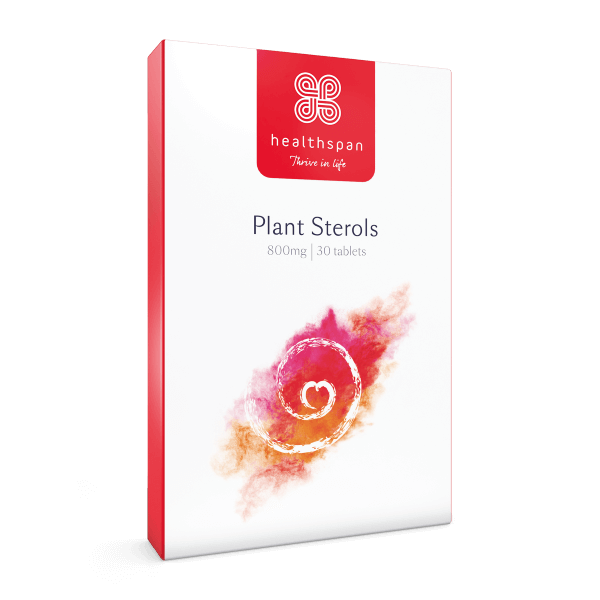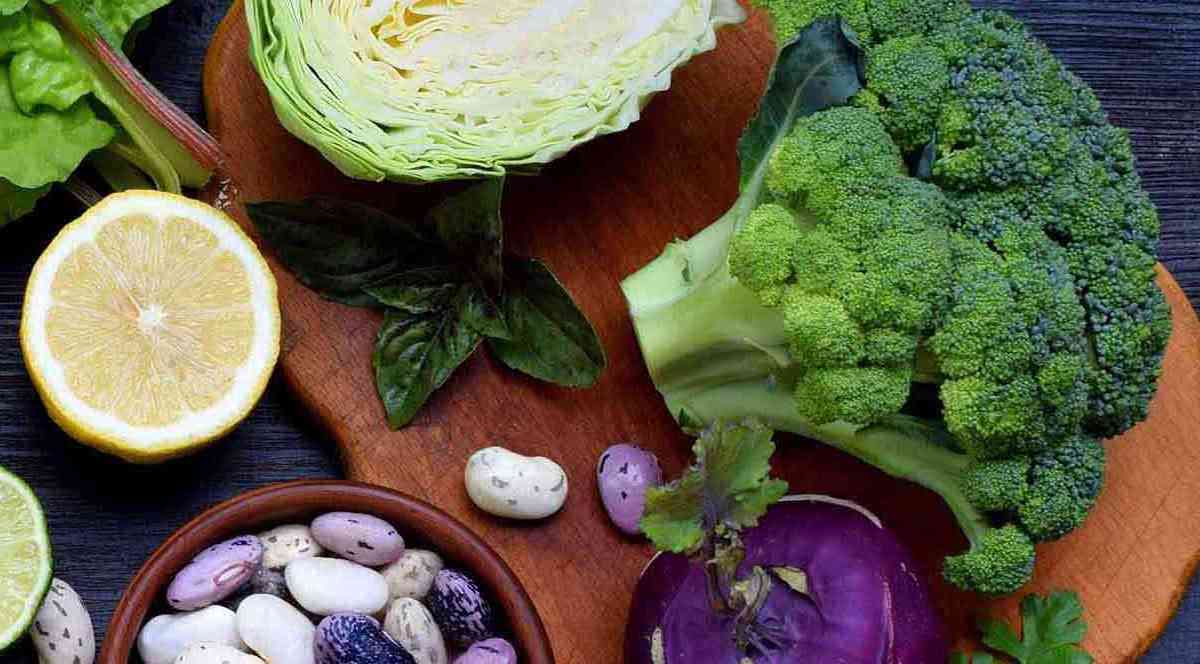Everything you need to know about cholesterol, including what it is and how to tell the good from the bad.
🕒 5 min read
Did you know that six out of ten people in the UK have raised or abnormal levels of cholesterol? Also known as the silent killer, high cholesterol is responsible for all manner of conditions, including stroke, heart attack and angina, but otherwise has no obvious symptoms.
What's more, recent research published in the Lancet Healthy Longevity has found that people under the age of 65 with high cholesterol have an increased risk of developing dementia compared to those with normal levels.
According to Heart UK, high cholesterol is also the leading cause of death in the UK. But it's not all bad news. There are plenty of simple lifestyle changes that will make a huge difference and help to keep your heart healthy.
What is cholesterol?
Cholesterol is a waxy, fat-like substance produced by the liver that is found in all animal-sourced food.
It's vital for health as it is used by the body to make hormones, vitamin D and bile acids, and maintain healthy cell membranes.
There are two types of cholesterol: 'good' HDL cholesterol and 'bad' LDL cholesterol, which travel through your blood wrapped up in protein particles called 'lipoproteins'.
What's the difference between 'good' and 'bad' cholesterol?
Too much 'bad' cholesterol can build up in your arteries causing them to harden or fur, which restricts the blood flow to your heart and increases your risk of heart disease.
'Good' cholesterol helps to control the amount of bad cholesterol in your blood by transporting excess LDL cholesterol from your arteries to your liver for removal.
It's all about balance
Your balance of 'good' and 'bad' cholesterol is one factor influencing your risk of heart disease, and it's important to be aware of this balance.
Like many things in life, it's important to have just the right amount. Too much cholesterol may be bad for health, although this is no longer as clear-cut as once believed.
It's not just the total level of cholesterol or the ratio of LDL to HDL cholesterol that's important, but your balance of IDL, VLDL and lipoprotein(a), aka all the 'non-HDL' cholesterol types.
What causes high cholesterol?
There are a variety of genetic, health and lifestyle factors that can raise your cholesterol levels, including:
- Having an immediate family member with high cholesterol
- Having an immediate family member under the age of 60 who had suffered a heart attack, stroke or angina
- Having type 2 diabetes
- Being physically inactive
- Smoking
- Following a diet high in animal and saturated fats

Plant Sterols 800mg
Shown to maintain or lower cholesterol
- Blocks the absorption of dietary cholesterol
- One tablet a day maintains normal cholesterol levels
- Three tablets a day (2.4g) lowers cholesterol levels
How to reduce cholesterol
We all know that having a healthy lifestyle, which includes regular exercise, a healthy diet and weight and low alcohol consumption, has long been associated with lower 'bad' cholesterol and increased 'good' cholesterol. Now, a recent study has confirmed this, indicating that combining healthy habits with cholesterol-lowering drugs such as statins has the greatest benefit.
Scientists at the Department of Epidemiology at Harvard TH Chan School of Public Health in Boston measured 61 different lipid (fat) markers in the blood samples of 4,681 people, including cases of stroke and heart disease, and healthy individuals.
They found 50 lipid markers that were associated with a healthy lifestyle and found that beneficial effects of lipid changes associated with a healthy lifestyle were linked with a 14 per cent reduced risk of heart disease.
Plant sterols and cholesterol
Find out what plant sterols are and why they are a natural way to reduce cholesterol.
Find out more
Make these changes today...
If you're worried about your genetic risk of high cholesterol, have been diagnosed with high cholesterol, or your GP has advised your cholesterol is rising, try these simple changes to lower your risk naturally:
-
Eat more... fruit and vegetables, pulses such as lentils, chickpeas, kidney beans and black beans per day, and include wholegrains in as many meals as possible. Try to eat fish twice a week, making sure one of these is oily – salmon, mackerel, sardines or tuna are good options. Your intake of antioxidants from fruit and veg is important, as these protect LDL cholesterol from oxidation and prevent the furring up of the arteries. That's why eggs are no longer off the menu – their antioxidant, vitamin and other nutrient content can offset the effects of the cholesterol present, so they can be included as part of a varied, balanced diet.
-
Cut back on... saturated fats like butter, full-fat milk, cream and cheese, coconut and palm oils. Instead, choose modest amounts of olive, rapeseed, sunflower and other plant oils and spreads, almond milk and cottage or other lower fat cheeses.
-
Move regularly... to keep your heart and circulatory system healthy. Aim for a minimum of 150 minutes of moderate exercise per week – aka 30 minutes per day. Or, 75 minutes of vigorous exercise such as running, swimming or cycling, plus resistance training to strengthen muscles and joints on two additional days.
-
Lose weight... in order to maintain a healthy weight, your BMI should be between 18.5 and 24.9. Although eating a healthy balanced diet and exercising regularly have their own benefits, they also mean a reduction in risk of type 2 diabetes when combined with weight loss.
-
Quit smoking... by visiting www.smokefree.gov, now.
-
Try Plant Sterols. These are scientifically shown to maintain or lower cholesterol, depending on the dose you choose.
Cholesterol levels are only one of many different risk factors used to assess your risk of heart disease. You can calculate your own risk if you know your blood pressure and cholesterol/HDL ratio (calculated by dividing your total cholesterol by your HDL level) at http://qrisk.org.
Ideally, your non-HDL cholesterol should be lower than 4mmol/L and your total cholesterol should be 5mmol/L or less. Your ratio of total cholesterol divided by HDL cholesterol should be less than 6. A ratio above 6 is considered high risk, so the lower the ratio the better.
The following are healthy for most people:
Total cholesterol: 5 mmol/L or less
Non-HDL-cholesterol: 4 mmol/L or less
LDL-cholesterol: 3 mmol/L or less
*Mmol/L=millimoles per litre (source: Heart UK)
If you are at a higher risk of heart disease or already have heart disease, you may need to further reduce cholesterol. Check with your GP.








